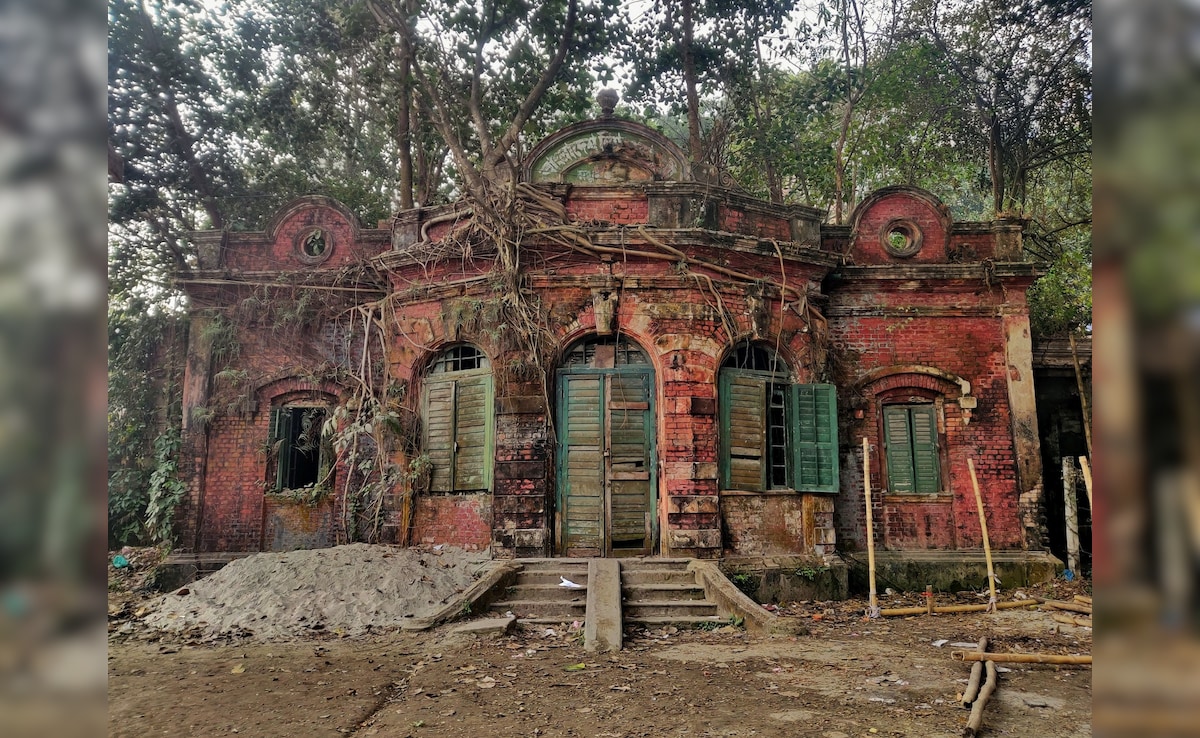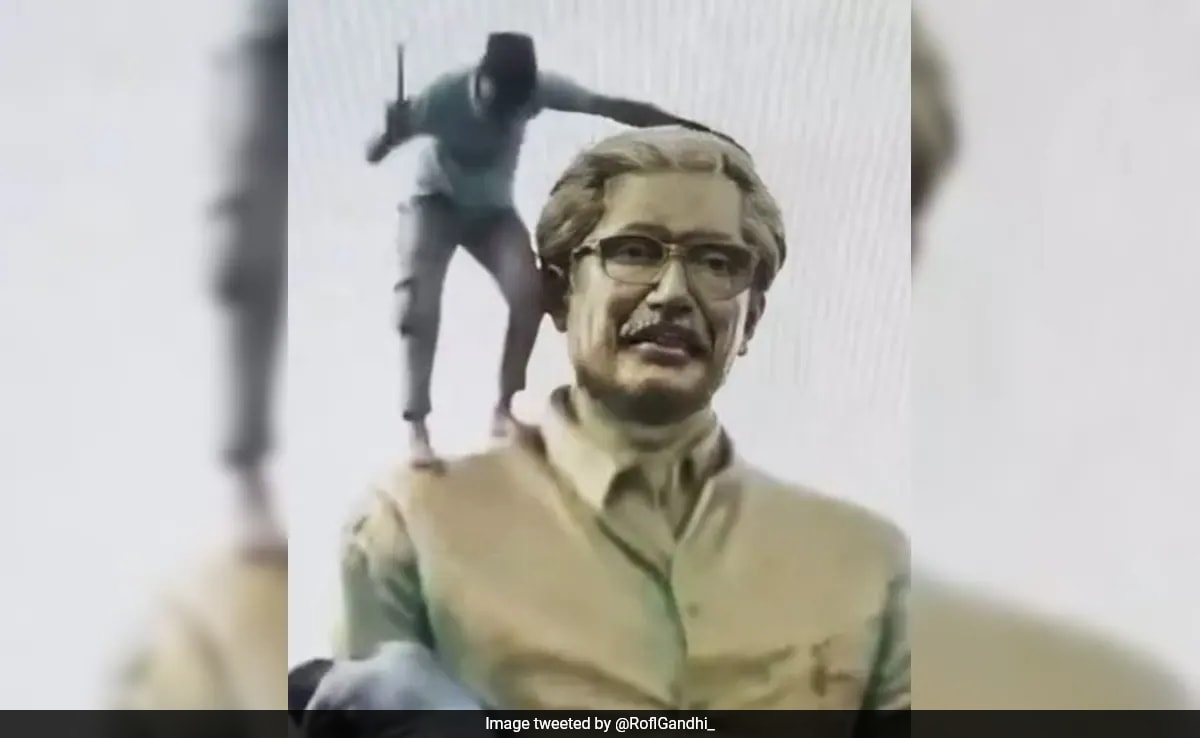Mujib, Tagore, Now Ray: Culture Crackdown In Bangladesh Post Hasina Ouster?
Bangladesh appears to be shedding its past, its cultural history and its shared heritage with India

The demolition of legendary filmmaker Satyajit Ray's ancestral home in Bangladesh's Mymensingh has yet again spotlighted the cultural shift in the neighbouring country after the Sheikh Hasina government was ousted and a new dispensation led by Nobel laureate and economist Muhammad Yunus took charge.
The months following the change of guard in Dhaka have seen India-Bangladesh ties nosedive. While India has flagged reports of attacks on Hindu minorities, Bangladesh has demanded that New Delhi stay out of its internal matters and extradite Sheikh Hasina. This comes after decades of close partnership between the two countries and is also significant against the historical backdrop of India's support in Bangladesh getting its freedom from Pakistan in 1971.
Another transformation has followed the leadership change. Bangladesh appears to be shedding its past, its cultural history and its shared heritage with India. And in doing so, iconic cultural centres are being neglected at best, and destroyed at worst.
Here are a few instances
February 2025: A part of the ancestral house of Sheikh Mujibur Rahman, the founding president of Bangladesh and Sheikh Hasina's father, is demolished. This Dhaka residence is where the hero of the Bangladesh liberation movement was murdered along with nearly 50 members of his family and staff.
June 2025: The ancestral home of Rabindranath Tagore at Shahzadpur in Bangladesh's Sirajganj district was vandalised by a mob following a dispute between a visitor and a museum staff over a parking fee. The mob damaged the auditorium and attacked an official. The museum was temporarily closed, and a probe was initiated.

July 2025: Legendary filmmaker Satyajit Ray's ancestral home in Mymensingh is being demolished. Bangladesh authorities argue that the structure, belonging to Ray's grandfather and litterateur Upendra Kishore Roy Chowdhury, is being demolished after "necessary approvals".
According to an IANS report, officials from Dhaka's Department of Archaeology admitted that their repeated requests to protect the building went unheard.
India has offered cooperation in repairing and restoring the historic structure. "Given the building's landmark status, symbolising Bangla cultural renaissance, it would be preferable to reconsider the demolition and examine options for its repair and reconstruction as a museum of literature and a symbol of the shared culture of India and Bangladesh," the Ministry of External Affairs said.

A Shared Culture
Before the Radcliffe Line hacked parts of Punjab and Bengal in 1947, setting off a bloody human migration, Bengal was partitioned in 1905 too. While the move was largely aimed at easing administration, it was seen as a 'divide and rule' attempt, and such was the backlash that the British were forced to reverse it.
And then, the 1947 Partition happened. Millions of Bengalis left their homes, towns and families behind as they started life as refugees in Kolkata and several parts of the Northeast. Like their counterparts in Punjab, they could never forget their lost home. This longing transcended borders and also enriched a shared cultural heritage.
Bengali music, literature and cinema have never been divided, nor have Bengal's cultural icons. The cultural centres in Bangladesh connected to Ray and Tagore are significant against this backdrop. Their neglect and vandalism imply an indifference to this cultural heritage and a distancing of a section of Bangladesh from these cultural icons, who once commanded equal admiration on both sides of the border.
Amid reports about Ray's ancestral residence, West Bengal Chief Minister Mamata Banerjee posted on X, "The Ray family is one of the foremost bearers and carriers of Bengali culture. Upendrakishore is a pillar of Bengal's renaissance. Therefore, I believe this house is intricately tied to the cultural history of Bengal. I appeal to the Bangladesh government and all the conscientious people of that country to take steps to preserve this heritage-laden house. The Indian government should pay attention to this matter."

Bangladesh vs History
As Sheikh Hasina fled Dhaka amid nationwide protests, an iconic image played on TV screens and phones across the world. A section of protesters toppled a golden statue of Sheikh Mujibur Rahman on Bijoy Sarani. It was an iconic sight. Sheikh Mujibur Rahman was not just Sheikh Hasina's father. Called 'Bangabandhu', he was the revolutionary who led Bangladesh to freedom. To destroy his statues and vandalise his ancestral residence goes beyond the public sentiment against his Prime Minister daughter. It signals a society's disowning of its history and a desperate attempt to distance itself from its liberation movement, based primarily on language.
In fact, the protests that ousted Hasina were triggered by the Awami League government's policy to reserve 30 per cent of government jobs for descendants of veterans who fought in the 1971 war of independence from Pakistan. Most of these people were linked to the Awami League. Bangladesh has a huge unemployment problem and many of its young nationals were born in a free country. For them, the reservation for the 1971 veterans limited their opportunities. They protested, and when Hasina tried to crush this protest, it grew only stronger.

Is Islamism Growing In Bangladesh?
Reports of atrocities against minority Hindus have sparked a buzz that Islamic fundamentalism is gaining ground in Bangladesh after the Awami League government was ousted. The Jamaat-e-Islami, which supported Islamabad during the 1971 War of Liberation and was banned by Sheikh Hasina, has returned to the political landscape and is now eligible to contest elections.
Bangladesh has a paradoxical constitution. It says that the state religion is Islam, "but the State shall ensure equal status and equal right in the practice of the Hindu, Buddhist, Christian and other religions". It adds that the principle of secularism shall be realised by eliminating communalism, by abuse of religion for political purposes and by preventing discrimination on religious grounds.
In fact, when Bangladesh became independent, it did not have a state religion. It was in 1988 when military dictator Hussain Muhammad Ershad pushed Parliament to recognise Islam as the state religion. In 2011, the then Sheikh Hasina government stressed secularism, but Islam remained the state religion.
With the change of guard, Bangladesh is again at the crossroads. The National Consensus Commission, tasked with leading critical democratic reforms, discussed this issue too. About 38 political parties debated recommendations to change the terms of the Constitution from "secularism" to "pluralism". "Although most parties rejected the idea of pluralism, they recommended incorporating some form of protection for minorities," said Ali Riaz, the commission's vice president.
-
Opinion | What's Driving Pakistan-Afghanistan War? Islamabad's Never-Ending Cycle Of Insecurity
Islamabad has accused Kabul of drifting into an "India colony", a charge that was further sharpened following Afghan Foreign Minister Amir Khan Muttaqi's visit to New Delhi last year
-
Behind Arvind Kejriwal's Freedom: The 'South Group' Tag, A US Drugs Case
Special Judge Jitendra Singh also asked searching questions of the Central Bureau of Investigation, the federal agency tasked with building the corruption case against Kejriwal.
-
Opinion | The Hypocrisy Of Pakistan And Turkey's Frustration With India-Israel Ties
Even before the conclusion of PM Modi's visit, editorials and op-eds appeared in Pakistani and Turkish media, indulging in fear-mongering about India and Israel's deepening ties.
-
Soviet Union, US Coalition, And Now Pakistan: Afghan Military's New Test
Pakistan would have the upperhand in a short, conventional war. But if history is any indicator, Afghanistan can bleed Pakistan in a prolonged guerrilla warfare condition
-
Arvind Kejriwal Won The Case That Cost Him His Job
Months of drama followed Kejriwal's arrest, including allegations of medical negligence and the AAP claiming the BJP was trying to 'kill' him in prison by denying him insulin.
-
Opinion | Why Social Media Platforms Must Share The Wealth Others Create For Them
There are an estimated 2-2.5 million active digital creators in India. Yet only 8-10% effectively monetise their work.
-
Opinion | Congress's 'Jamaat' Experiment In Kerala Can Backfire Badly. But Does It Care?
The Jamaat has always been sort of a political pariah in the state. Why, then, is the Congress warming up to it?
-
Opinion | A BAFTA Award, Straight From The Ashes Of Manipur's Moreh
The shooting for 'Boong' in Moreh wrapped up barely a week before violence engulfed the township. Many who stood behind and before the camera are today internally displaced.
-
Inside Mumbai's Worsening Air Pollution Crisis
Mumbai Air Pollution: Mumbai 's overall Air Quality Index (AQI) on February 25 remained in the poor to unhealthy range.
-
Opinion | What's In An 'M'? The Empty Performance of Renaming Kerala
The 'm' at the end of Keralam will not stop the sea from encroaching, it will not fill the coffers of the state treasury, and it will not provide a bed in a super-specialty hospital.
-
News Updates
-
Featured
-
More Links
-
Follow Us On










